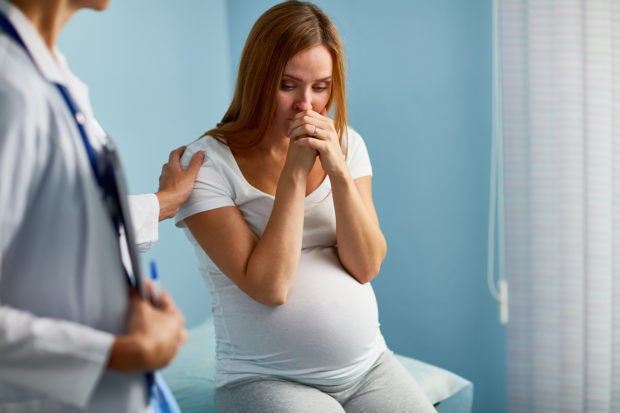Women who experience early pregnancy loss may suffer from post-traumatic stress, anxiety and depression

Image: shironosov/Istock.com via AFP Relaxnews
New European research has found that one in six women experience long-term post-traumatic stress following a miscarriage or ectopic pregnancy.
Carried out by researchers at Imperial College London, United Kingdom, and KU Leuven in Belgium, the new study is the largest to date to look at the psychological impact of early-stage pregnancy loss and included more than 650 women attending the Early Pregnancy Assessment Units at three London hospitals.
The women were asked to complete questionnaires that asked about their feelings and behaviors one month after pregnancy loss, then again three and nine months later.
The majority of women (537) had suffered a miscarriage before 12 weeks of pregnancy, while 116 had suffered an ectopic pregnancy, which always results in pregnancy loss as the embryo grows outside of the womb and is unable to develop.
Their responses were then compared to 171 women who had healthy pregnancies.
The findings, published in the journal American Journal of Obstetrics and Gynaecology, showed that the women who had a healthy birth had significantly lower levels of psychological symptoms than those found in women who had suffered early pregnancy loss.
The responses also showed that one month after pregnancy loss, 29% of women suffered post-traumatic stress, 24% experienced moderate to severe anxiety, and 11% had moderate to severe depression.
Nine months after pregnancy loss, 18% of women were still suffering from post-traumatic stress, 17% had moderate to severe anxiety, and 6% had moderate to severe depression.
The women experiencing post-traumatic stress reported regularly re-experiencing the feelings associated with the loss of their baby, and experiencing intrusive or unwanted thoughts about the loss. Some women also had nightmares or flashbacks.
Lead author of the study, Professor Tom Bourne, commented on the findings saying, “Pregnancy loss affects up to one in two women, and for many women it will be the most traumatic event in their life. This research suggests the loss of a longed-for child can leave a lasting legacy and result in a woman still suffering post-traumatic stress nearly a year after her pregnancy loss.”
Dr. Jessica Farren, first author of the research, also added that, “We have made significant progress in recent years in breaking the silence around mental health issues in pregnancy and postnatally, but early pregnancy losses are still shrouded in secrecy, with very little acknowledgment of how distressing and profound an event they are.”
“Many women don’t tell colleagues, friends or family they are pregnant before the 12-week scan, leaving them feeling unable to discuss their emotions if they suffer a pregnancy loss. We also know partners can suffer psychological distress following miscarriage or ectopic pregnancy and are investigating this in ongoing research.” IB/NVG
RELATED STORIES:
Obesity during pregnancy could impact boys’ development and IQ
A mother’s exposure to certain chemicals during early pregnancy could lower their child’s IQ